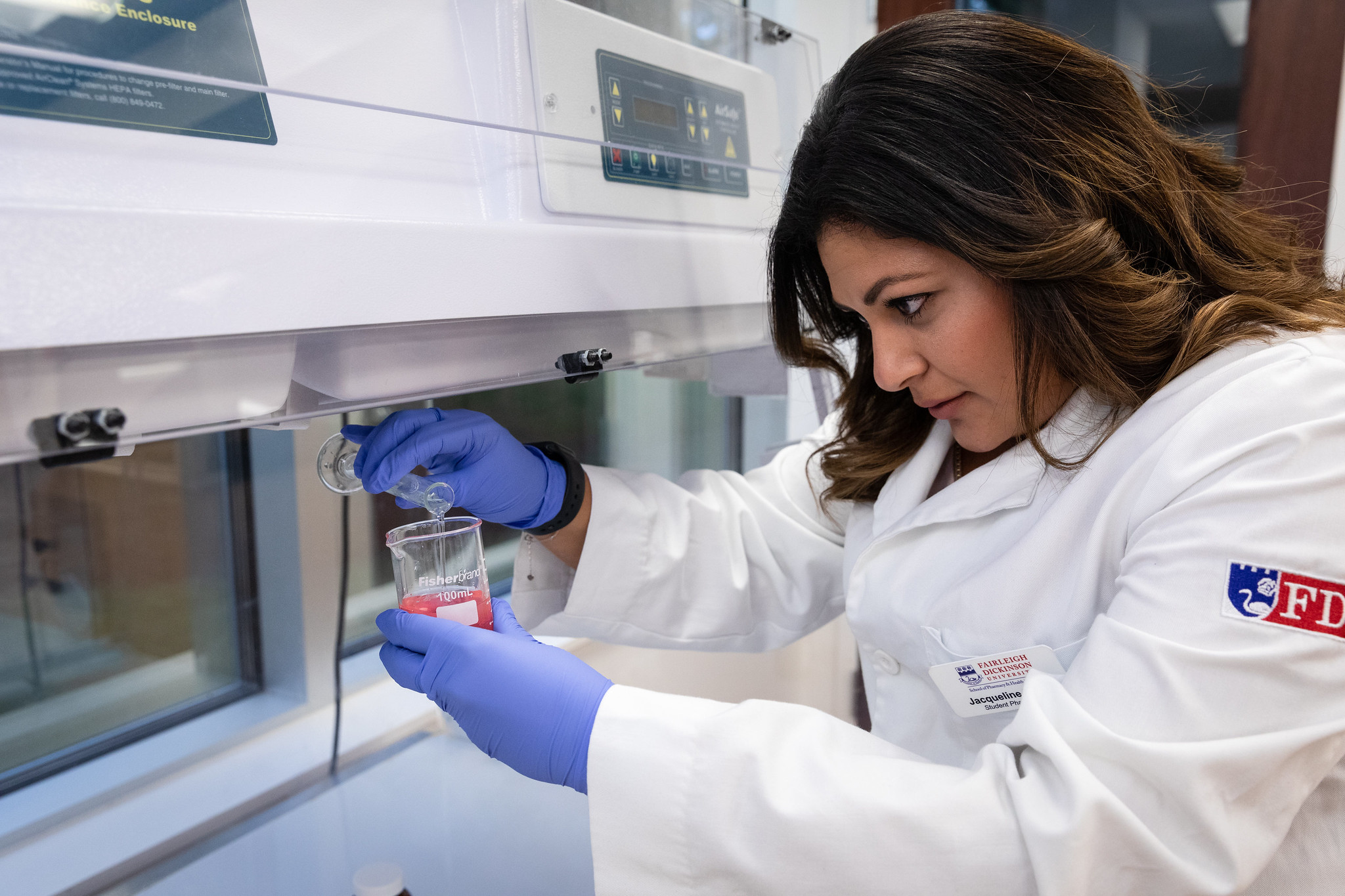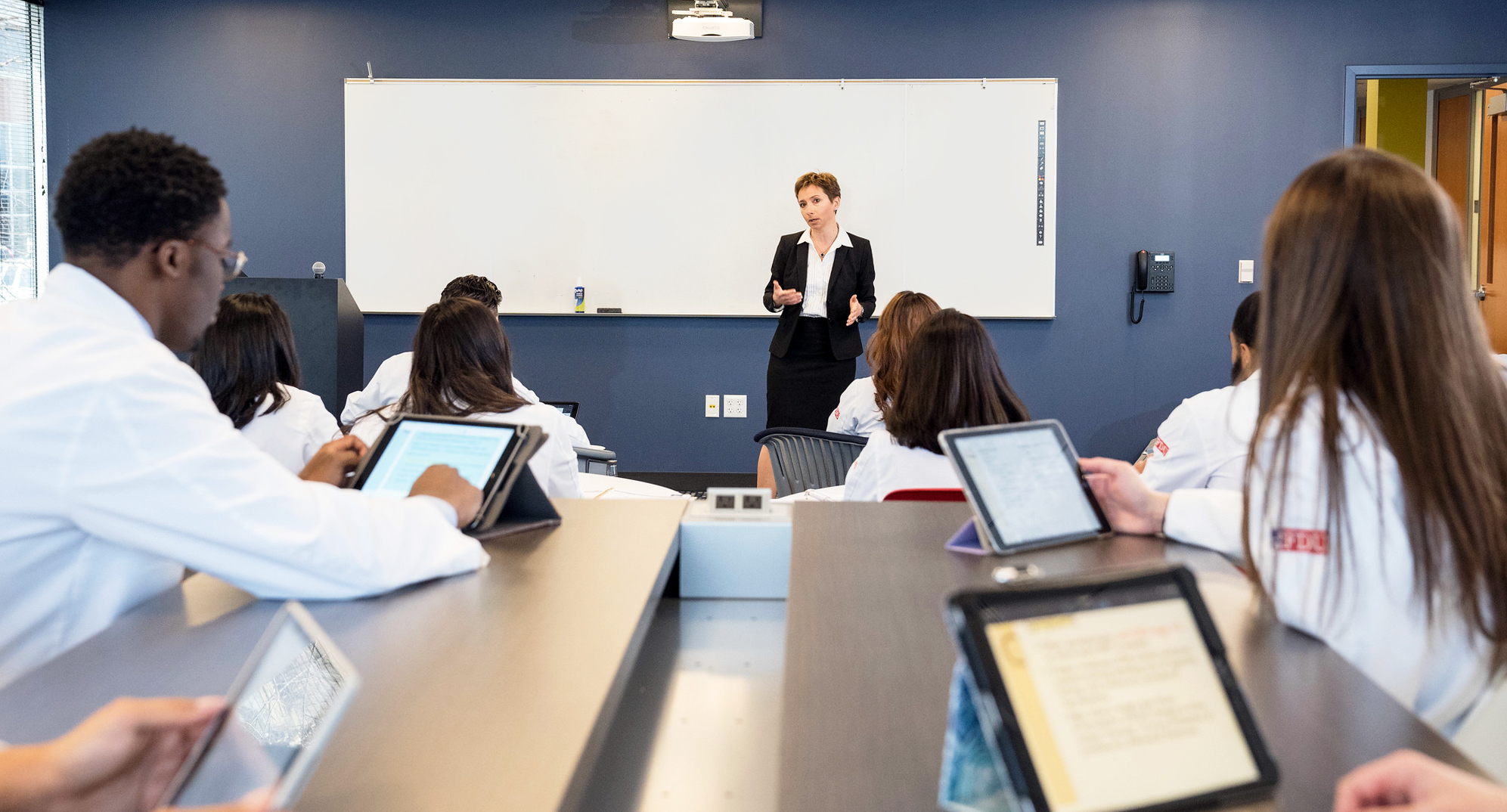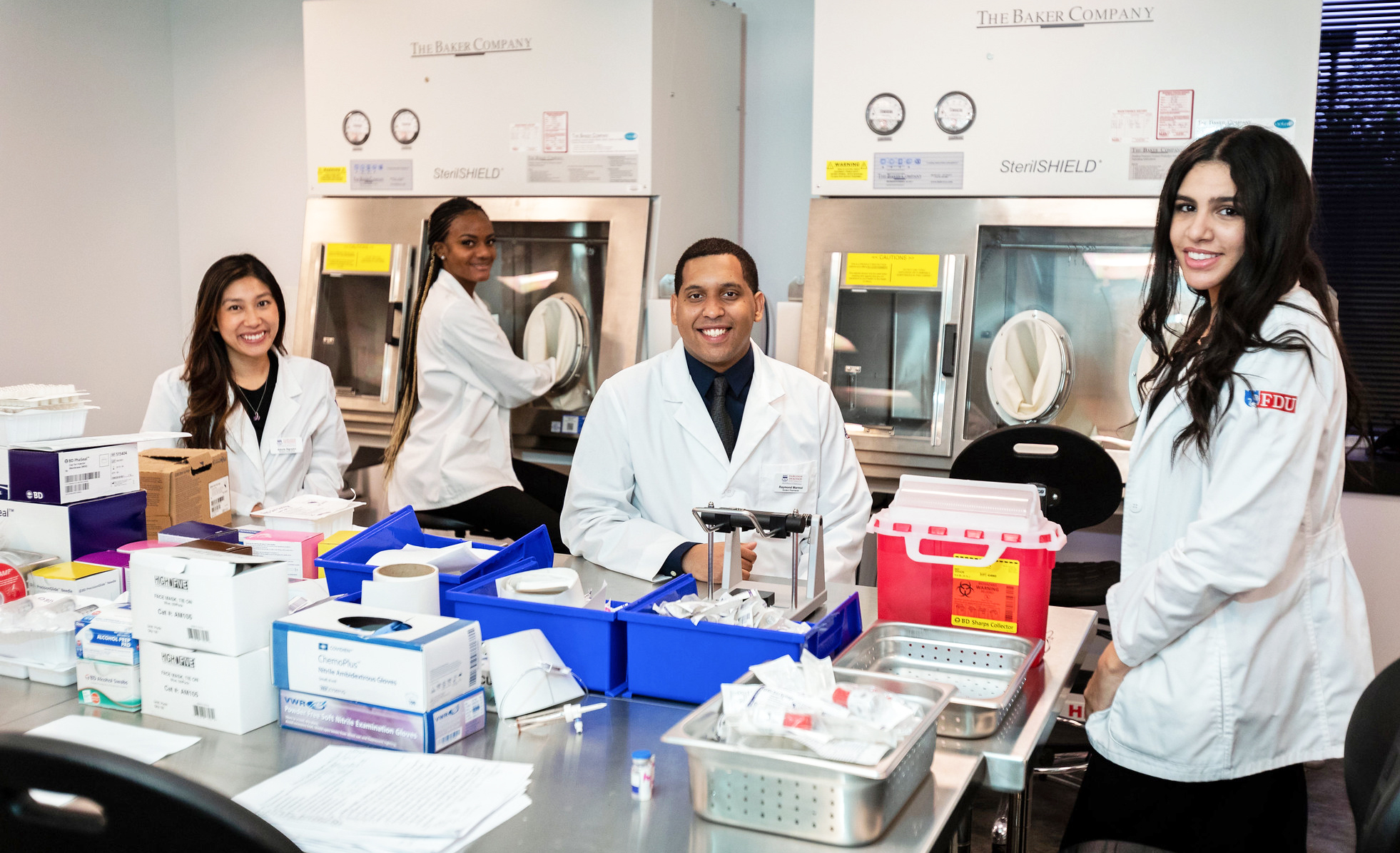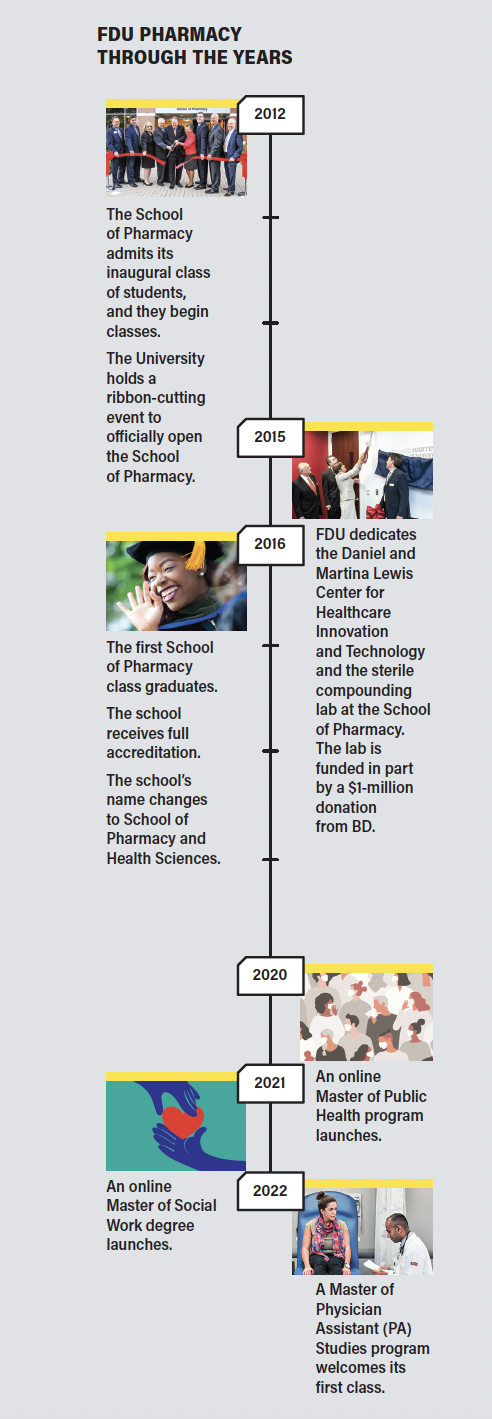A Landmark First Decade for the School of Pharmacy and Health Sciences

(Photo: Alan Brian Nilsen/ABNphotography.com)
By Kenna Caprio
For more than a decade, the core tenets of the School of Pharmacy and Health Sciences — think, communicate, advocate, lead and implement — have stood as guideposts, inspiring the school’s growth, leadership and direction.
In its infancy, as the first class matriculated, FDU’s pharmacy school was known for being the second pharmacy school in New Jersey. Small class sizes, a student-centric culture and a focus on the future of health care grounded the school and quickly set it apart.
“We have really high-quality programs. We take personal pride in the programs. We know our students on an individual basis. The team who built the school has largely stayed here. I’m proud of building this culture, and I’m very cognizant of the fact that it’s difficult to maintain and nurture. It’s one of the reasons I wanted to become dean — to preserve that,” says Anastasia Rivkin, the new dean of the School of Pharmacy and Health Sciences. She joined the school in 2012 as a professor of pharmacy practice and the assistant dean for faculty and was appointed dean effective July 1.

Anastasia Rivkin, dean of the School of Pharmacy and Health Sciences, will lead the school into its next phase. (Photo: Joshua Siniscal)
The school built its reputation as an innovative education hub, with an emphasis on technology, cross-disciplinary courses and world-class facilities, including a sterile compounding lab.
PharmD graduates work in community settings at chain or independent pharmacies or apply to fellowships at global health care companies or residencies to go into the clinical field. In the Class of 2021, 12 percent of graduates went on to residencies, 10 percent to fellowships and the rest into community settings. “One graduate is working at the Food and Drug Administration,” says Rivkin.
Since the first class of 69 pharmacy students graduated in 2016, there are now more than 300 School of Pharmacy and Health Sciences alumni.

(Photo: Alan Brian Nilsen/ABNphotography.com)
New programs continue to emerge. Since 2020, the school has launched three new degrees at the master’s level in public health, social work and physician assistant studies.

As she looks ahead, Rivkin has her sights set on expanding opportunities through interprofessional education; program growth and strategic partnerships; diversity, equity and inclusion efforts; and a student-centered approach.
Students across the pharmacy and health sciences disciplines will work together in-house, learning to work as a health care team — “putting the patient in the center and providing the best care possible,” says Rivkin.
The carefully crafted fellowship opportunities extended to pharmacy students and the one-on-one student and faculty approach will expand to include students in all of the degree programs. The school also hopes to land a flagship partner in a health care center or hospital system for clinical rotations and study.
Areas on the third floor of the pharmacy and health sciences building are being outfitted and remodeled to better accommodate the academic programs — a telemedicine lab and an occupational therapy lab are in the works, as is a doctorate-level degree in occupational therapy.
“It has been tremendously rewarding to see the evolution of a concept — building a pharmacy school for the future of health care — transform into a comprehensive set of programs across multiple health science disciplines,” says Michael Avaltroni, University provost and senior vice president for academic affairs, and the former dean of the School of Pharmacy and Health Sciences. “What started out as a dream has turned into a real, multifaceted set of leading-edge programs that have developed over a decade of distinction within the health sciences at FDU.”